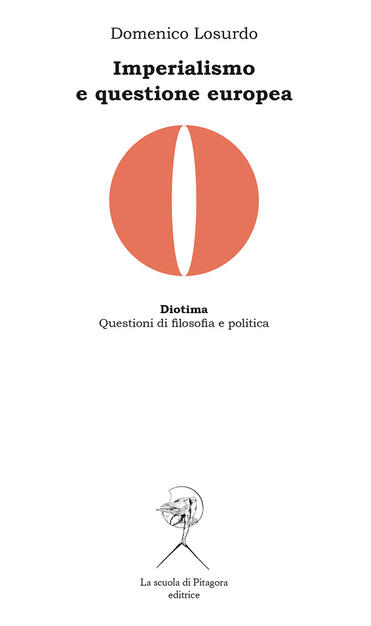Gianni Vattimo and Santiago Zabala
October, 2011
Cloth, 256 pages,
ISBN: 978-0-231-15802-2
$27.50 / £19.00
Cloth, 256 pages,
ISBN: 978-0-231-15802-2
$27.50 / £19.00
Having lost much of its political clout and theoretical power, communism no longer represents an appealing alternative to capitalism. In its original Marxist formulation, communism promised an ideal of development, but only through a logic of war, and while a number of reformist governments still promote this ideology, their legitimacy has steadily declined since the fall of the Berlin wall.
Separating communism from its metaphysical foundations, which include an abiding faith in the immutable laws of history and an almost holy conception of the proletariat, Gianni Vattimo and Santiago Zabala recast Marx’s theories at a time when capitalism’s metaphysical moorings—in technology, empire, and industrialization—are buckling. While Michael Hardt and Antonio Negri call for a return of the revolutionary left, Vattimo and Zabala fear this would lead only to more violence and failed political policy. Instead, they adopt an antifoundationalist stance drawn from the hermeneutic thought of Martin Heidegger, Jacques Derrida, and Richard Rorty.
Hermeneutic communism leaves aside the ideal of development and the general call for revolution; it relies on interpretation rather than truth and proves more flexible in different contexts. Hermeneutic communism motivates a resistance to capitalism’s inequalities yet intervenes against violence and authoritarianism by emphasizing the interpretative nature of truth. Paralleling Vattimo and Zabala’s well-known work on the weakening of religion, Hermeneutic Communism realizes the fully transformational, politically effective potential of Marxist thought.
The following is an interview with Gianni Vattimo and Santiago Zabala, authors of Hermeneutic Communism: From Heidegger to Marx. The interview took place in January, 2011.
Question: How does one manage to write a book with another author?
Santiago Zabala: It’s all about collaboration. Over the past several years, we have edited five book series for Italian and American publishers and also written several forewords and book reviews; this is not the first time we actually wrote together. Before one of us writes the first draft, we have a long conversation in order to decide the themes of each section. After this first draft is finished, the other checks it through and makes modifications where necessary.
Gianni Vattimo: Although most of the time Santiago wrote the first draft after our talk, there are occasions where I wrote it; either way, it’s very difficult now to recognize which parts each of us originally wrote not only because of the modifications and edits that came afterward but also because we decided together beforehand what each part was to be about. I’m very happy with the whole book, which managed, among other things, to cover many things I was forced to leave out in my Ecce Comu...
Santiago Zabala: It’s all about collaboration. Over the past several years, we have edited five book series for Italian and American publishers and also written several forewords and book reviews; this is not the first time we actually wrote together. Before one of us writes the first draft, we have a long conversation in order to decide the themes of each section. After this first draft is finished, the other checks it through and makes modifications where necessary.
Gianni Vattimo: Although most of the time Santiago wrote the first draft after our talk, there are occasions where I wrote it; either way, it’s very difficult now to recognize which parts each of us originally wrote not only because of the modifications and edits that came afterward but also because we decided together beforehand what each part was to be about. I’m very happy with the whole book, which managed, among other things, to cover many things I was forced to leave out in my Ecce Comu...
















1 commento:
There is, I think, always an element of intelectual overshooting in one stating explicitly that he/she adopts an "hermeneutic" perspective...
Yes, "reality" is always partly a matter of perspective, and yes, it's socially built, and yes, it's also partly "performative"... but so what? Is the "hermeneutic" credo just one more "perspective", or does it intend to be the ultimate truth? Which branch of the dilemma do you choose?...
As to more to-the-ground "matters of fact", it is simply false to say, or even to suggest, that Israel's infamous Wall is more or less the same thing than USA/Mexico one, or Spain/Morocco, etc. Indeed, USA's wall is a shame, and so is Spain's (and so, mutatis mutandis, was in a way Berlin's wall). But all these are/were, still, respecting internationally recognized borders, at least, and so they are in a way susceptible of being "interpreted" as strict internal matters.
But not in the case of Israel. In this case, the lands that are being surrounded by the Wall are already occupied territory. And so, Israel's case is indeed a very much more serious than Spain's or USA's ones.
Sorry, but no possible different "interpretation" as to that essential fact.
What to conclude, therefore, if one proclames to be officially an "interpretativist" and still doesn't capture imediately the importance of this distinguo?...
Saudações cordiais.
Lisboa, 21 de Julho de 2011
João Carlos Graça
Posta un commento